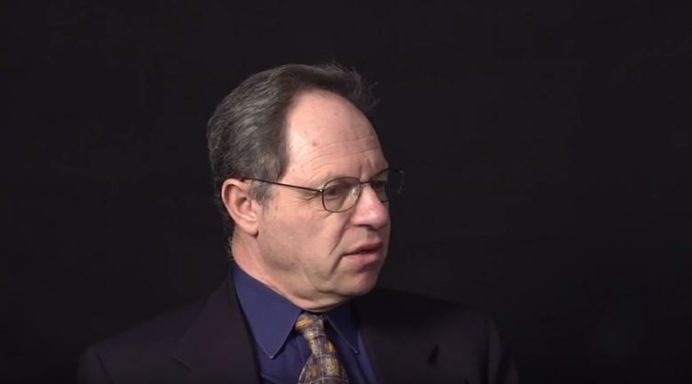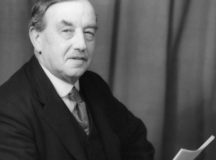Gershon Shafir argues that British Christian Zionism pre-dated practical Jewish Zionism and helped to ensure that, by the First World War, British imperial interests were woven into a narrative of Jewish return, creating ‘the political category into which Jews fitted themselves’ and ensuring that Jews were the only political community in Palestine to be recognised in the Balfour Declaration.
Introduction
In telling the history of Zionism, it is customary to start with the movement’s two or three spiritual precursors, Moses Hess, and Rabbis Alkalai and Kalisher; then leap to the practical Zionism of Hovevei Zion, then to Theodor Herzl’s political Zionism; and only then to the Balfour Declaration of 1917, which conveniently appeared and offered itself as a vehicle for implementing what the Zionist movement was already putting into practice.[1] My goal in this essay is to reverse that chronology by pointing out that long before Zionism was brought into being, let alone became a mass movement, the British had already conceived of just such a plan.
Of course, both sides made adjustments to each other during their tumultuous collaboration during the Mandatory years, but the question should be: on whose terms was Zionism put into effect in the first place? My claim is that we attribute to Zionism ideas and expressions that actually originated with the British.
British Christian Evangelical Restorationism and British Imperialism
Long before vague Jewish messianic aspirations became a concrete Zionist project, and long before Jewish voices proclaimed Jews to be a nation rather than a religious group, Zionism was a Christian venture. Zionism avant la letter, i.e. British proto-Zionism, emerged in the form of Christian Evangelical Restorationism, a movement calling for, and willing to sponsor, the emigration of Jews to Palestine as a precondition for the Second Coming of Christ (while simultaneously seeking to convert them to Christianity). When William Thomson, the Archbishop of York, addressed the Palestinian Exploration Fund (PEF) in 1875 he said – probably with a straight face – that ‘our reason for turning to Palestine is that Palestine is our country.’ It was the Bible, the ‘national epic’ of England, he explained, that had given him the ‘laws by which I try to live’ and the ‘best knowledge I possess’.[2]
But proto-Zionism was also a British imperial project facilitating Britain’s role as a Great Power in Palestine. The two justifications – religious and imperial – were not at loggerheads with each other but rather complimentary. In fact, even the most devoted Restorationists, such as the Earl of Shaftesbury, switched easily between the two discourses. Laurence Oliphant, a British traveller and diplomat, for example, suggested that while the idea of the restoration of the Jews is without question a ‘favourite religious theory,’ this ‘does not necessarily impair its political value’.[3] Locked in a struggle with the other Great Powers over the future of Palestine, British proto-Zionism doubled as a justification for the expansion of British power in Palestine at a time when all European Great Powers became involved in the affairs of the Ottoman Empire, the ‘sick man of Europe,’ ostensibly as protectors of its minorities, but actually with the real aim of breaking up the Empire and seizing a chunk of it.
In that struggle, Britain had a serious handicap; it didn’t have a dog in the fight. Under the one-sided ‘capitulations system’ of rights and privileges conferred on Christian nations, Russia could claim to protect the Christian Orthodox subjects of the Empire and the French could claim to be the protectors of the Roman Catholics, but the Ottoman Empire had very few Protestants. Enter the Jew – the ersatz Protestant. Jews were more valuable in Palestine than in England and, as the Restorationists admitted, albeit somewhat bashfully, by moving to Palestine they would no longer suffer from anti-Semitism.
Viscount of Palmerston and British foreign policy
The high tide of Restorationism was the decade of the 1830s, when the Ottomans were driven out of Palestine by troops under Ibrahim Pasha, son of Muhammad Ali (or Mehmet Ali), the revolting ruler of Egypt, putting the country in play for a decade. In January 1839, the Earl of Shaftesbury published an article, claiming that there was a burgeoning desire among European Jewry to return to Palestine. By July and August two of Britain’s leading newspapers, The Times and The Globe, leaving aside the theological speculation, suggested that ‘Jewish settlement in Palestine would free them from persecution in Europe and enable them to fulfil their historical role as agents of civilisation in the Middle East’.[4]
Conveniently, Shaftesbury’s father-in-law was the Viscount of Palmerston, Britain’s Foreign Secretary (1835-1841) and later Prime Minister. Between 1830 and 1860 he dominated British foreign policy. On 11 August 1840, Palmerston wrote to Viscount Ponsonby, the British Ambassador in Constantinople, to ask the Turkish Sultan ‘to hold out every just encouragement to the Jews of Europe to return to Palestine’. Palmerston, himself not a Restorationist, suggested that the arrival of Jewish settlers under the Sultan’s ‘Sanction and Protection and at [his] Invitation’ would help the Ottomans not only because ‘it is well known that the Jews of Europe possess great wealth,’ but also because it would place the Sultan in an advantageous position vis-a-vis his Egyptian rival, Mehmet Ali.[5] The Sultan curtly rejected the suggestion, but the British did not let go of it for the next century.
In 1841, a mission of inquiry sent by the Church of Scotland to Palestine issued a Memorandum to Protestant Monarchs of Europe for the Restoration of the Jews to Palestine, and called on them to take on the mantle of Cyrus and restore the people of Israel to their native land.[6] A member of the mission, a Scottish clergyman named Alexander Keith, was the first to speak of ‘a people without a country; even as their own land [. . .] is in a great measure a country without a people,’ a phrase which eventually came to be transformed into the specious slogan ‘a land without people for a people without a land’. So this slogan, notwithstanding its attribution to the Zionist movement, and sometimes to Israel Zangwill, himself a British Zionist and associate of Herzl, wasn’t Jewish in origin. It appears in dozens of variations in Restorationist and imperialist tracts and letters, though it later was adopted into the Zionist lexicon of justifications.
Nor were the earliest forms of Jewish proto-Zionism free of British influences. Rabbi Yehuda Alkalai from Sarajevo visited London a decade later, in June 1852, with the intention of encouraging ‘the influential men of Israel’ to speak to Sultan Abdul Magid about Jewish restoration. His visit, however, brought him into contact with British Restorationists and led to the formation of the Association for Promoting Jewish Settlement in Palestine. As soon as Britain joined in the Crimean War, it founded the Palestine Land Company seeking to settle some 100,000 Jews in Palestine. Alkalai, who until then assumed the traditional role of the shtadlan – a ‘lobbyist’ on behalf of the Jewish community, and expected others to act likewise – published a book in 1857 with a very different slant. A Plot for the Lord (Goral La’adonai) started with traditional theological discussions of the messiah but then made some novel practical suggestions, including the formation of a railroad or steamship joint stock company to induce the Sultan to cede Palestine to the Jews as a tributary country.[7] Very likely, he had picked up some of these practical ideas in London.
British Archaeology in Palestine
A particularly intriguing British undertaking for gaining influence in Palestine was archaeological excavation. Since the known Christian sites of Palestine were already under the control of either Orthodox or Catholic Christians, by associating themselves with Jewish ruins, British Protestants were able to tap into a remaining religion, and one with the oldest pedigree in the land. Thus, in 1865, the PEF was established in London with the aim of excavating Palestine’s Jewish heritage.[8] In this field, the British could also best the Ottomans, who could not justify their presence in the land with reference to ancient archaeology; as an empire, they had ties everywhere and nowhere. Archaeology made the Ottomans into the occupiers of Palestine while the British, the Protestant inheritors of the Bible, became its ‘rightful’ possessors.
In early 1867, Captain Charles Warren, then a 26-year-old assistant instructor in surveying at the School of Military Engineering in Chatham, was asked to lead an expedition to Palestine. He received a double commission. The PEF charged him with the exploration of ancient Jerusalem, the surveying of the sites of the Temple and the Holy Sepulchre as well as the city’s ancient walls and current gates. Field Marshall Prince George, Commander in Chief of the British Army, ordered him to map Jerusalem’s south and south-west environs, the Judean Plains. Warren did all that and even ventured across the Jordan. Archaeology and intelligence gathering in the Middle East went hand in hand until the First World War, and the PEF funds for these projects were comingled. In fact, most came from the coffers of Her Majesty’s government. Warren must have had fun titling his book of excavations Underground Jerusalem.
In 1875, Warren published The Land of Promise, suggesting the formation of a company in the model of the British East India Company tasked with settling in Palestine North African Jews who, in the racialised view typical of colonial officials, were of sufficient moral stature to undertake such a task. Others, among them Claude Conder, Gawler, and in 1870 Laurent Oliphant, continued working for the implementation of Palmerston’s plan to return Jews to Palestine.
However, these schemes had two opponents. The first was organised British Jewry. When Colonel Charles Churchill, a resident British officer in Damascus, reached out in June 1841 to Moses Montefiore, President of the Board of Deputies of British Jews, he was rebuffed.[9] Montefiore, though personally connected with major Restorationist figures, was committed to supporting the impoverished Jews of Palestine – for example by helping them become peasants – but he didn’t encourage colonisation by Jews coming from elsewhere. Above all, he first wanted England’s Jews to be emancipated. Only later would the British link up with Zionism, when the Zionist movement – in particular its political wing, Political Zionism – would adopt the British approach.
The second group of opponents were the Ottomans, including the Tanzimat reformers. Palmerston wanted the Ottoman Empire be kept in one piece and under British influence, which he believed required its reform, and he hoped the settlement of Western Jews in Palestine would strengthen the reformers. But the Ottoman reformers’ aim was to strengthen the Empire in order to minimise the intervention of foreign powers in its internal affairs, a goal that Palmerston’s suggestion – to settle Jews who were not Ottoman subjects – would have undercut.[10] Britain linked up with the modern Zionist movement only when it no longer wished to maintain the integrity of the Ottoman Empire but rather joined the plotting to dismember it.
It took a long time for the British imperial claim to speak for Jews and the secular Zionist movement’s desire to settle Palestine to connect up. It was hardly a predetermined outcome. It could have been derailed in 1903 if the Uganda Plan – to give a portion of British East Africa to the Jewish people as a homeland – had been pursued. Moreover, the Zionist movement was not originally oriented toward Britain. By 1917, when the Balfour Declaration was issued, Zionist colonisation had already been going on for over three decades. Throughout those years the World Zionist Organization (WZO) was headquartered in Vienna, Cologne and then in Berlin. The Zionist movement’s centre of gravity shifted to Britain as a result of its conquest of Palestine, and its head office moved to London soon thereafter. By then, the WZO’s Jaffa office and the Zionists had evolved a workable theory of their own colonisation project.
These early differences, however, did not matter in the long run. The British were never much concerned with the specifics of the Jewish colonies, or even about where the Jews came from. James Finn, the first British Consul in Jerusalem, in 1857 expected the nation to emerge from among those Jews the Tsar had transplanted into Central Asia to do their military service,[11] while, less than two decades later, Charles Warren looked to the Sephardic Jews who lived in Barbary and Morocco.[12] It was the language of justification used vis-à-vis the Great Powers and the attitudes towards the natives – that is the combined imperial settler colonial dynamic – that the British had developed and put on offer.
What all British plans shared was a simple four-part credo: Jewish colonisation, under Turkish sovereignty, and British protection, to modernise a backward land. This was to be a British Jewish mission civilizatrice and was understood as good for the British, good for Jews, and good for the Turks, who got to keep the Empire in one piece. And the Arabs? Few ever mentioned them. Laurence Oliphant, one of the last imperial Restorationists, disposed of this problem easily. ‘The war-like Bedouin can be driven out, the peasant Arabs reconciled and placed on reserves like the Indians in Canada.’ In any event, Oliphant wrote, the Arabs ‘have very little claim to our sympathy having laid waste to the country, ruined its villages, and plundered its inhabitants until it has been reduced to its present condition’.[13]
Conclusion
What then was the character of the relationship between imperial and Christian Restorationism and Zionism? I suggest that English proto-Zionism started earlier than Jewish Zionism which, in time, filled the role, up to a point, that the British imperial Restorationists had already allocated it. In particular, a great deal of the Zionist language of justification was taken from the lexicon of British imperialism. The British did not merely anticipate or shape Zionism. As well as providing a political vehicle and a security umbrella to Zionism, the British part-furnished the vision of a settler project. It might be most accurate to suggest that the British created the political category into which Jews fitted themselves: the only political community in Palestine to be recognised in the Balfour Declaration.
References
[1] Arthur Hertzberg, The Zionist Idea (New York: Atheneum, 1959); Shlomo Avineri, The Making of Modern Zionism: Intellectual Origins of the Jewish State (New York: Basic Books, 1981).
[2] Barbara W. Tuchman, Bible and Sword: England and Palestine from the Bronze Age to Balfour (New York: Ballantine, 1984).
[3] Tuchman, Bible and Sword, 271.
[4] Abigail Green, Moses Montefiore: Jewish Liberator, Imperial Hero, Cambridge (Boston: Harvard University Press, 2010), 147.
[5] Isaiah Friedman ed., The Rise of Israel: From Precursors of Zionism to Herzl (New York: Garland, 1987), 48-49.
[6] Green, Moses Montefiore, 146.
[7] See Avineri, Modern Zionism; Hertzberg, The Zionist Idea; and ‘Alkalai Judah Ben Soloman Hai,’ http://www.jewishencyclopedia.com/articles/1247-alkalai-judah-ben-solomon-hai.
[8] John J. Moscrop, Measuring Jerusalem: The Palestine Exploration Fund and British Interests in the Holy Land (London: Leicester University Press, 2000).
[9] Howard M. Sachar, A History of Israel (New York: A.A. Knopf, 1979), 56.
[10] Green, Moses Montefiore, 148.
[11] Friedman, The Rise of Israel, 75.
[12] Charles Warren, The Land of Promise: or Turkey’s Guarantee (London: George Bell & Sons, 1875), 21.
[13] Tuchman, Bible and Sword, 273.






































Prussians & the Balfour
http://www.h-net.org/reviews/showrev.php?id=29314
Prof. Shafir, I have almost completed a book on precisely that subject. The religious zionism preceding Alkalai, who was influenced, as you say, by English Zionism, was mixed with a lot of politics and social unease from the 17th century when secular ideas made deep inroads into English thinking just as the Bible became available to everyman. The secularisation of the Bible to which the Old Testament was more amenable than the New was perhaps a greater influence on English Christian Zionism than religious messianism.